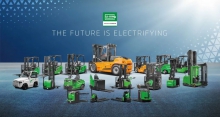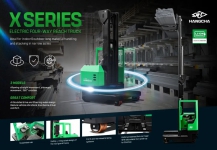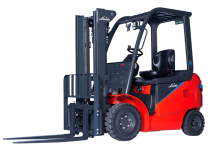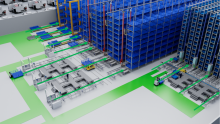The operator of a standup order picker was killed on the job recently. The circumstances weren’t unusual. OSHA ...
The operator of a standup order picker was killed on the job recently. The circumstances weren’t unusual. OSHA arrived on the scene asking all the right questions. But there’s one question all lift truck operators and fleet managers need to ask themselves: Did this man die in vain?
What happened to him could have happened to anyone. There’s even a name for this kind of accident—“under-ride.” That’s a sanitary name for a grotesque way to go. An operator traveling with his forks trailing backs up toward a storage location. But without realizing it, he goes too far—far enough so the vehicle passes under the rack’s horizontal crossbar. The crossbar enters the operator’s compartment and crushes him.
According to OSHA, between 1993 and 2008, at least nine workers were killed this way. Three others were injured severely. Their order pickers didn’t have protective rear guards or corner posts to prevent under-rides. And apparently these operators missed something in their training about driving in reverse.
OSHA’s Powered Industrial Trucks Standard, 29 CFR 1910.178, requires operators to keep the forklift under control at all times and to look in the direction of travel. This point should have been a key element of their training—if they had any.
And they should have. This standard also requires employers to develop and implement a training and certification program specific to the equipment and to the workplace.
If your facility uses standup order pickers, OSHA offers the following advice:
If you have rack crossbars or similar obstructions, adjust the shelf heights so that either the body of the forklift below the operator’s compartment or the forklift’s overhead guard will strike the rack in the event of contact.
Install a barrier such as a curb or floor level shelf so the bottom of the forklift will strike the curb or shelf in the event of contact.
Consult the forklift vendor about installing corner posts, extended backrests, rear post guards, or other features on the forklift.
Make sure these retrofits don’t limit visibility, present pinch-point hazards, or add any additional hazard to forklift operators or other employees.
The consequences of not paying attention to these details go beyond death. If an employer is found negligent by not observing their due diligence providing a safe working environment, it could result in a criminal record.
Very soon the House Education and Labor Committee will deliver a full markup of the Protect America’s Workers Act of 2009 (S. 1580/H.R. 2067) to the Senate. This legislation would significantly increase financial penalties and would raise the criminal penalty from a misdemeanor to a felony for “willful” violations that result in a “serious bodily injury” or death.















 粤公网安备 44010602003952号
粤公网安备 44010602003952号